Search
Remove Ads
Advertisement
Summary 
Loading AI-generated summary based on World History Encyclopedia articles ...
Search Results
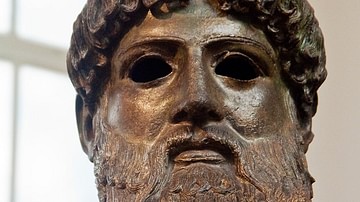
Definition
Zeus
Zeus was the king of the 12 Olympian gods and the supreme god in Greek religion. Zeus is often referred to as the Father, as the god of thunder, and the 'cloud-gatherer'. Zeus controlled the weather and offered signs and omens. Zeus generally...
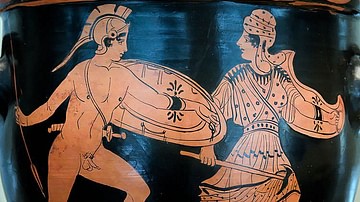
Article
A Visual Who's Who of Greek Mythology
Achilles The hero of the Trojan War, leader of the Myrmidons, slayer of Hector and Greece's greatest warrior, who sadly came unstuck when Paris sent a flying arrow guided by Apollo, which caught him in his only weak spot, his heel. Adonis...
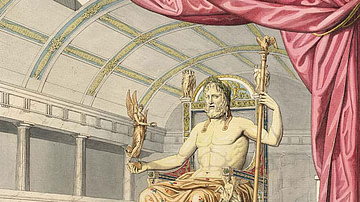
Definition
Statue of Zeus at Olympia
The monumental statue of Zeus at Olympia in Greece was one of the Seven Wonders of the Ancient World. Created in the 430s BCE under the supervision of the master Greek sculptor Phidias, the huge ivory and gold statue was bigger even than...
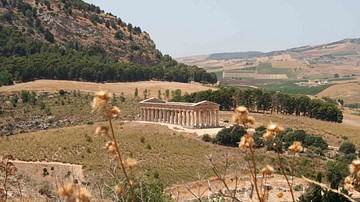
Article
Greek Temples of Sicily
There are at least a thousand reasons to visit Sicily, the great island – indeed the largest in the Mediterranean – that forms the triangular football to the boot that is the Italian peninsula. They are all very good reasons, including amazing...
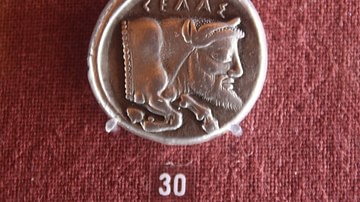
Definition
Gela
Gela (Greek: Ghéla), in southern Sicily, was a Greek colony founded c. 689 BCE and it remained an important cultural centre throughout antiquity. Prospering on trade and expanding its territory, the city-state founded Agrigento. In the 5th...
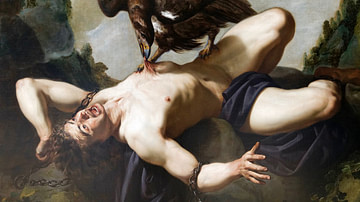
Definition
Prometheus Bound
The Greek dramatist Aeschylus (c. 525 - c. 456 BCE) is considered one of the greatest tragic playwrights of his generation. He is often referred to as the “Father of Greek Tragedy.” Older than both Sophocles and Euripides, he was the most...
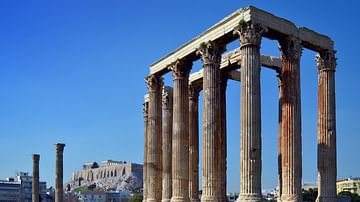
Article
Temple of Olympian Zeus, Athens
The Temple of Olympian Zeus in Athens, also known as the Olympieion, was built over several centuries starting in 174 BCE and only finally completed by Roman emperor Hadrian in 131 CE. Its unusually tall columns and ambitious layout made...
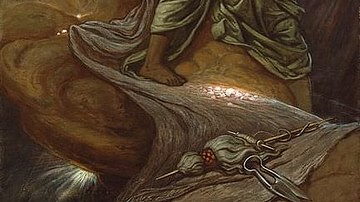
Definition
Theogony
The Theogony is an 8th-century BCE didactic and instructional poem, credited to the Greek poet Hesiod. The Theogony was, at first, not actually written down, rather, it was part of a rich oral tradition which only achieved written form decades...
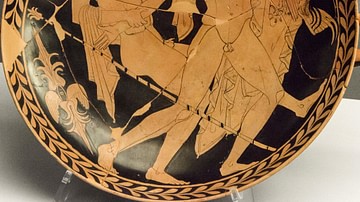
Definition
Ganymede
Ganymede (pronounced GAH-nuh-meed) is a youth in Greek mythology who is abducted by Zeus because of his great beauty and brought to Mount Olympus to serve as cupbearer. The story first appears in Homer’s Iliad without any suggestion of a...
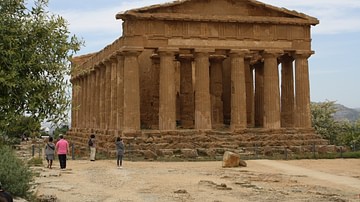
Definition
Agrigento
Agrigento (Greek: Akragas, Latin: Agrigentum) was a Greek-founded city-state located on the south coast of Sicily near the river Akragas (now S. Biagio) just 5 km from the sea. At its peak, the city may have had as many as 300,000 inhabitants...